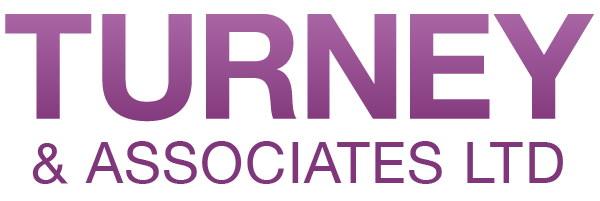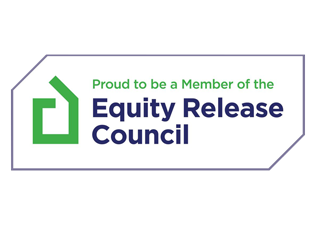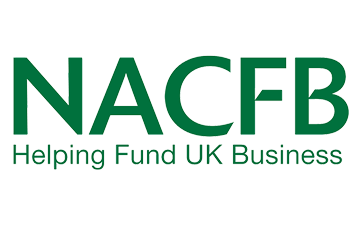Find out whether a Help to Buy equity loan could help you buy a new-build home and, if you’re eligible, discover how to apply.
Applications are now open for the new version of the Help to Buy equity loan scheme, which launched on 1 April 2021.
A Help to Buy equity loan is a loan from the government which you can combine with a deposit and a mortgage to buy a new-build property.
Depending on where you live, the government will lend you between 15% and 40% of the property price. You will need to put down a deposit of at least 5% and get a mortgage to cover the rest of the property’s value.
The amount you can borrow is as follows:
- Up to 20% in England and Wales
- Up to 40% in London
- Help to Buy equity loans aren’t currently available in Scotland or Northern Ireland.
This guide focuses on Help to Buy in England
If you wanted to buy a house in England for £200,000 with a 5% deposit and a 20% Help to Buy loan you would need:
- £10,000 deposit
- £150,000 mortgage
- £40,000 Help to Buy equity loan
Using an equity loan rather than going it alone has two key benefits: you will only need a 5% deposit and, as you’re only borrowing 75%, instead of up to 95%, you will be able to access better mortgage rates.
Help to Buy equity loans are for a percentage of the property value, rather than a set cash amount. This means you could end up paying back more or less than you borrowed, depending on whether your home rises or falls in value.
For example, if you take out f 20% equity loan to buy a property worth £200,000 – a loan of £40,000 – and when you come to sell the property is worth £250,000 you’ll have to repay £50,000 – 20% of the new value of your home.
Who is Help to Buy for?
The government launched the Help to Buy scheme to make it easier for first-time buyers with small deposits to buy their first property, and to help existing homeowners to move house.
Help to Buy equity loans are only available on new-build properties so, if you want a modern home, then a Help to Buy equity loan could be a good way to reduce the size of the mortgage you take out. If you’re buying in London, you can take out a larger equity loan than elsewhere in England.
How do I get a Help to Buy equity loan?
To be eligible for a Help to Buy loan, you need to be buying a new-build home and also must:
- have a deposit of at least 5%
- be looking to buy a home worth £600,000 or less
- be purchasing a property you intend to live in most of the time
- not let out the property or use it as a second home.
How to repay a Help to Buy equity loan
You will need to repay your equity loan in full after 25 years, when your mortgage term finishes, or when you sell your home – whichever happens first.
As the loan is for a percentage of the property price rather than a set cash value, you will repay the market value of the loan at the time, rather than the amount you originally borrowed. You can also choose to repay part of the loan early in chunks of either 10% or 20% of the total property value.
Interest on Help to Buy equity loans
Help to Buy equity loans are interest-free for the first five years.
From year six, you’ll start paying interest at 1.75% of the loan. This rises each year by any increase in the Retail Prices Index (RPI) plus 1%.
In its official calculations, the government uses a representative example RPI of 5%, meaning the rate of interest would increase by 6% each year if RPI stayed at that level. The table below shows the projected equity loan interest payments on a £200,000 home with a 20% equity loan (£40,000) outstanding.
|
Year |
RPI + 1% | Annual interest | Annual cost (interest plus £1 per month management fee) |
| 6 | 6% | 1.75% |
£712 |
|
7 |
6% | 1.86% |
£754 |
|
8 |
6% | 1.97% |
£799 |
|
9 |
6% | 2.08% |
£846 |
| 10 | 6% | 2.21% |
£896 |
Remortgaging with a Help to Buy equity loan
If you take out a fixed-rate mortgage on a Help to Buy property, you’ll need to consider remortgaging before you’re transferred on to your lender’s (more expensive) standard variable rate at the end of your fixed term.
Unfortunately, many lenders don’t offer Help to Buy remortgaging deals. The vast majority of those that do lend will require you to pay off the equity loan in full, either by taking out a larger mortgage and using some of that cash, or by using the equity you’ve built up since buying (or any other savings you’ve gathered).
Paying off the equity loan has strong benefits. You’ll be able to enjoy 100% of any future uplift in the property’s value, you won’t need to pay any more interest on the loan, and you’ll have a greater choice of deals next time you remortgage.
If you can’t pay off the loan when remortgaging, perhaps due to a lack of growth in the value of the property or a change in personal circumstances, you’ll have far fewer options, as only a handful of banks offer deals that allow equity loans to remain outstanding.
If you’re coming to the end of your fixed term, it can be a good idea to get impartial, expert advice from a mortgage broker on your remortgaging options.
Changes to maximum Help to Buy mortgage terms
In September 2019, the government raised the maximum mortgage term available to Help to Buy homeowners and remortgagers to 35 years.
Previously, buyers using Help to Buy or existing users remortgaging with an outstanding equity loan were limited to 25-year terms.
Help to Buy equity loans from April 2021
The Help to Buy equity loan scheme will change from 1 April 2021.
From then on, loans will only be available to first-time buyers, and the maximum amount you can borrow will also be regionally capped.
Applications for the new version of Help to Buy opened on 16 December 2020. Buyers who reserve a property under the new version of the scheme will be able to move in from 1 April.
The maximum prices for Help to Buy homes sold from 1 April 2021 are as follows:
| Region | Price cap |
| East Midlands | £261,900 |
| East of England | £407,400 |
| London | £600,000 |
| North East | £186,100 |
| North West | £224,400 |
| South East | £437,600 |
| South West | £349,000 |
| West Midlands | £255,600 |
| Yorkshire & the Humber | £228,100 |
COVID-19 extension of Help to Buy completion deadline
In February 2021, the government extended the completion deadline for homes bought under the current iteration of Help to Buy to the end of May 2021. This came after it was revealed that more than 16,000 purchases were at risk due to delays in the build process caused by the coronavirus outbreak.
The move marked the third time the Help to Buy completion deadline had been extended since the start of the pandemic, and the government says no further extensions will be granted.
Pros and cons of Help to Buy equity loans
Advantages
- With the loan boosting your deposit, you may be able to get a mortgage more easily than if you were borrowing the whole remaining 95% from a mortgage lender.
- Taking out a mortgage on a smaller proportion of the property price could mean you get a better rate.
- The current maximum property price is £600,000, so you could potentially get a bigger property or buy in a more popular area than if you didn’t use an equity loan.
- As the loan is for a percentage of the property value, rather than a set cash amount, if the property drops in value you will pay less back.
- The loan is interest-free for the first five years, so if you’re able to pay it off before interest kicks in it’s a cheap way to borrow.
- The scheme is open to both first-time buyers and home movers.
- For some people, it’s the only viable way of getting on the property ladder.
Disadvantages
- Some critics argue that a Help to Buy premium exists, where people pay more for Help to Buy properties than others buying identical homes without the scheme. This means it may be harder to build up your equity, as the property could grow in value less than other homes on the same development.
- As the loan is for a percentage of the property value, rather than a set cash amount, if the property grows in value you will pay more back.
- Getting a mortgage on a Help to Buy property can sometimes be challenging, and not all lenders cater for the scheme. This can be even more problematic when you come to remortgage a few years down the line.
- You can only use the loan to buy a new-build home, so it’s not going to help if you wanted an older property.
- Once the interest kicks in it rises sharply – by increases in the Retail Prices Index (RPI) + 1% every year.
- If house prices drop before you’ve had a chance to pay off much of your mortgage, you could find yourself in negative equity, where you owe more on your mortgage (and equity loan) than your home is worth.
Should I take out an equity loan?
If you’re interested in buying a new-build property, a Help to Buy equity loan is certainly worth considering. However, if you’ve been struggling to save for years it can be easy to get carried away by the amount on offer through Help to Buy.
Don’t max yourself and the loan out without thinking carefully about how you’ll pay it back or afford the interest payments five years down the line. If you decide to apply, or at least investigate further, you should contact your local Help to Buy agent.
If, on the other hand, you decide against Help to Buy, there are plenty of other options:
- 100% mortgages: These mortgages don’t require any form of deposit, but you will need to set up some form of guarantor mortgage agreement, where a family member agrees to cover the cost of any losses if you cannot keep up with your mortgage payments.
- 95% mortgages: We recently found that the number of 95% mortgages on the market increased by 45% from November 2017 to November 2018, so there’s a lot of choice of products that will accept a 5% deposit without needing to take out an equity loan.
- Guarantor mortgages: As mentioned above, this is when a family member uses their own property or savings to prove that they will cover any losses that result from you being unable to meet your mortgage repayments. This means lenders may accept a smaller deposit than usual – or, sometimes, no deposit at all.
- Buy with a partner or friends: You can choose between having a joint tenancy or tenancy in common.
- Lifetime ISA: A government savings initiative for first-time buyers. You could get up to £1,000 a year as a free government bonus when you pay in a maximum of £4,000. But it can only be opened by 18 to 39-year-olds, and there are some other caveats.
Is Help to Buy popular?
The Help to Buy equity loan scheme has been very popular with first-time buyers and home movers since its launch in 2013, though it has faced criticism in some quarters for driving up house prices.
[Source: which.co.uk, March 2021]
Want to know more? Get in touch!
Image by Sammy-Williams from Pixabay







